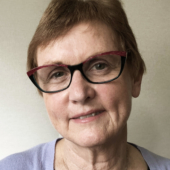Spectrum: Autism Research News
Why it’s difficult to study sleep in autism
Sleep problems are unusually common in people on the spectrum, and yet the topic is poorly understood. In this Cross Talk, five scientists discuss the biggest hurdles they face in understanding the relationship between autism and sleep.
For some, the issues are largely technical: The gold-standard sleep test is time-consuming and costly to administer. For others, it’s a lack of funding, ill-defined terms or fragmentation of the field. Despite the challenges, these scientists agree on the importance of the work, and that progress in this field requires collaboration, investment and large datasets.
The Experts:

Ruth O'Hara
Complex technology can bog down research into sleep issues in people on the spectrum.

Beth Malow
Sleep problems may underlie some core features of autism.

Ashura Buckley
Fragmentation in the field hampers progress on sleep and autism.

Philippe Mourrain
Animal models could reveal the circuits that control sleep, deep under the brain’s surface.

Amanda Richdale
The field needs better definitions of sleep quality and more longitudinal studies.
By joining the discussion, you agree to our privacy policy.